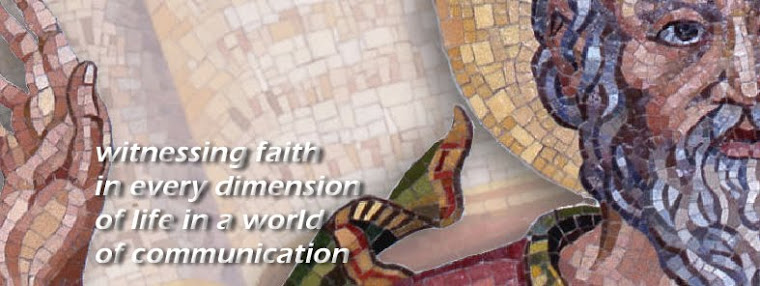The issue you have addressed in this meeting, "St. Paul and the new Areopagus," in light of the Year of St. Paul recently concluded, helps to relive the experience of the Apostle of the Gentiles in Athens when, after preaching in many places he went to the Areopagus, and there proclaimed the Gospel in a language that today we might call 'inculturated' (cf. Acts 17:22-31).
That areopagus, which was then the cultural center of the learned people of Athens, today - as my venerated predecessor John Paul II said – "it can be taken as a symbol of the new sectors in which the Gospel must be proclaimed." (Redemptoris Missio , 37). In fact, the reference to that event is a pressing invitation to learn to interpret the "Areopagus" of today, where the great challenges of evangelization are confronted. You intend to analyze this issue realistically, taking into account the many social changes that have occurred, with a realism sustained by the spirit of faith that sees history in the light of the Gospel, and with the certainty that St. Paul had in the presence of the risen Christ. Comforting for us are the words that Jesus spoke in Corinth: "Do not be afraid. Go on speaking, and do not be silent, for I am with you. No one will attack and harm you" (Acts 18:9-10). The Servant of God Paul VI said that it is not only about preaching the Gospel, “but also of affecting and as it were upsetting, through the power of the Gospel, mankind's criteria of judgment, determining values, points of interest, lines of thought, sources of inspiration and models of life, which are in contrast with the Word of God and the plan of salvation."(Teachings XIII, [1975], 1448).
We must look at the "new Areopagus" in this spirit, some of them in the current globalization, have become common, while others are specific to certain continents, as was seen in the recent Special Assembly for Africa of the Synod of Bishops. The Church's missionary activity should therefore be geared towards these nerve centers of society of the third millennium. Nor can we underestimate the influence of a widespread culture of relativism, for the most part lacking in values, which enters the sanctuary of the family, infiltrates in education and other areas of society and contaminates them, manipulating consciences, especially those youth. At the same time, however, despite these pitfalls, the Church knows that the Holy Spirit is always in action. New doors are opened to the Gospel and the yearning for an authentic spiritual and apostolic renewal begins spreading throughout the world. As in other periods of change, the pastoral priority is to show the true face of Christ, the Lord of history and the one Redeemer of man. This requires that every Christian community and the Church as a whole offer a witness of fidelity to Christ, patiently building up the unity willed by Him, and prayed for by all His disciples. The unity of Christians will, in fact, make it easier to evangelize and to face the cultural, social and religious challenges of our time.
In this missionary venture, we can look to the apostle Paul, imitating his "style" of life and his same apostolic "spirit" totally focused on Christ. With such complete adherence to the Lord, Christians will be more likely to transmit to future generations the legacy of faith, transforming even difficulties into opportunities for evangelization. In my recent Encyclical Caritas in Veritate, I wanted to emphasize that the economic and social development of contemporary society needs to regain the attention to spiritual life and a "a serious consideration of the experiences of trust in God, spiritual fellowship in Christ, reliance upon God's providence and mercy, love and forgiveness, self-denial, acceptance of others, justice and peace... Christians long for the entire human family to call upon God as “Our Father!” (no.79).
I invoke upon you and upon those who take part in this Plenary Assembly, God's help and the protection of the Virgin Mary, Star of Evangelization, and I cordially send my blessing to everyone.
From the Vatican, November 2009. BENEDICT XVI PP
(Agenzia Fides 16/11/2009)
(c) Drawing of Paul, Sr. Elaine Penrice, fsp


No comments:
Post a Comment